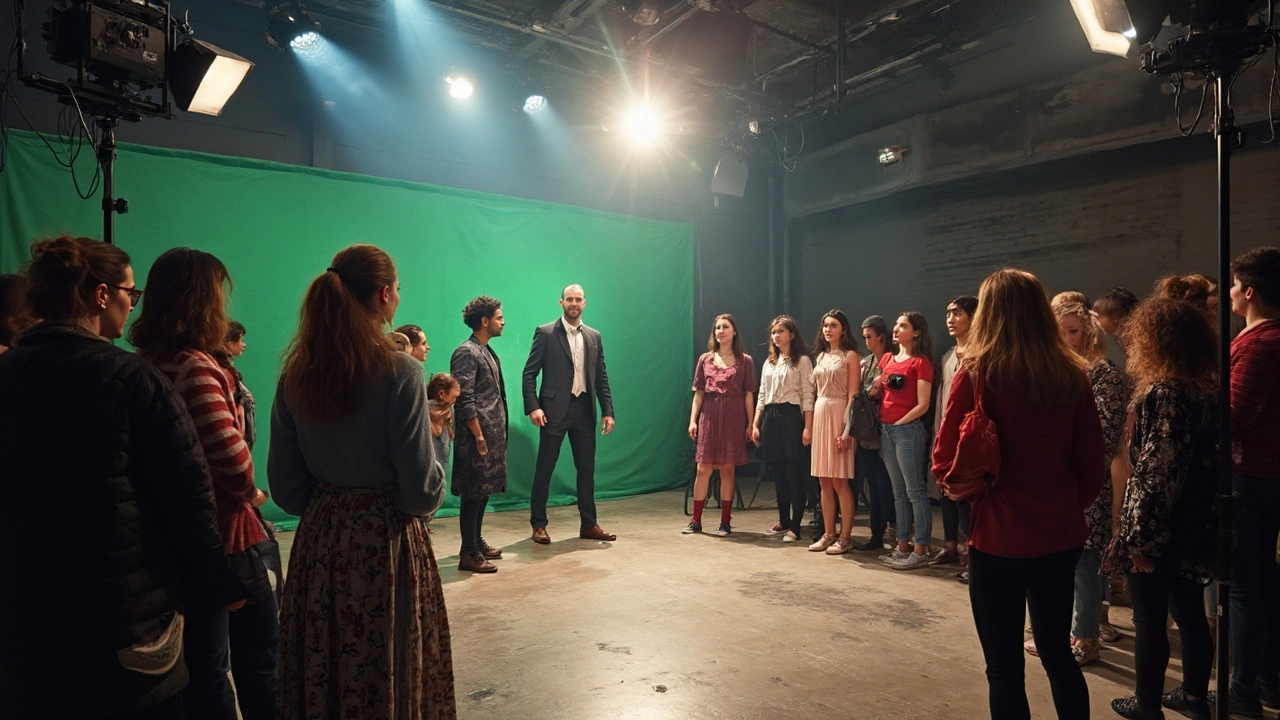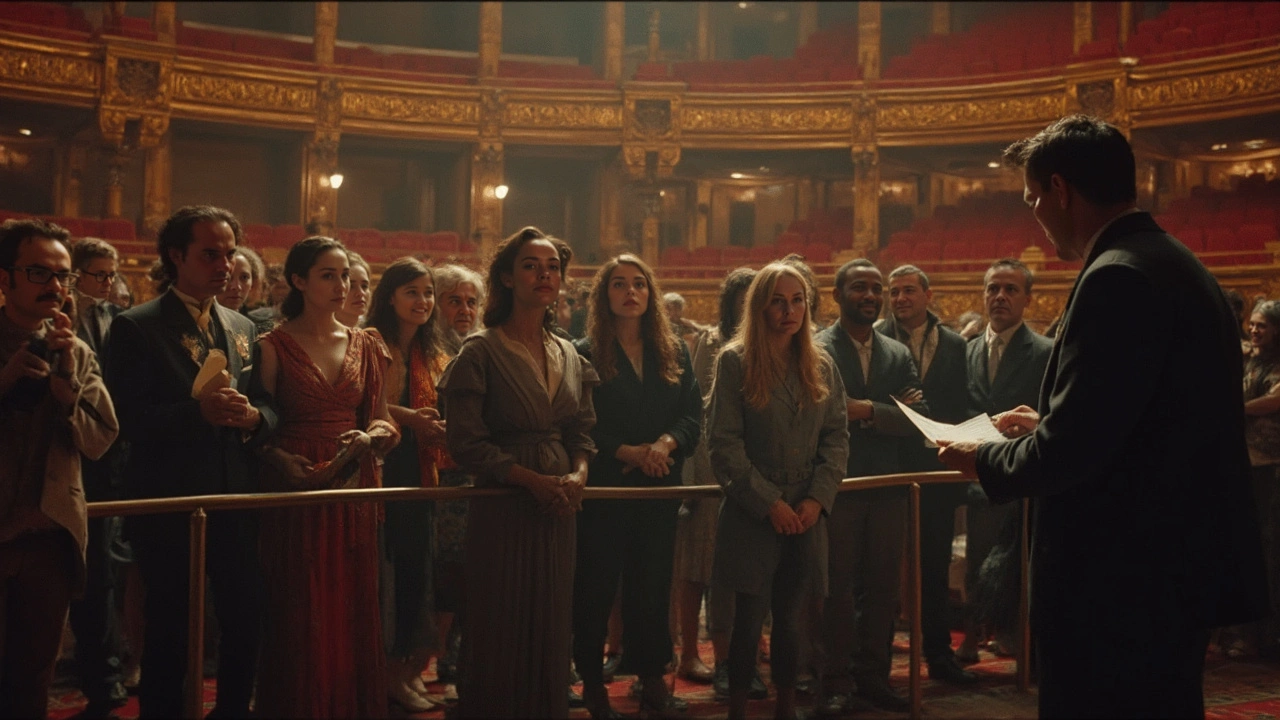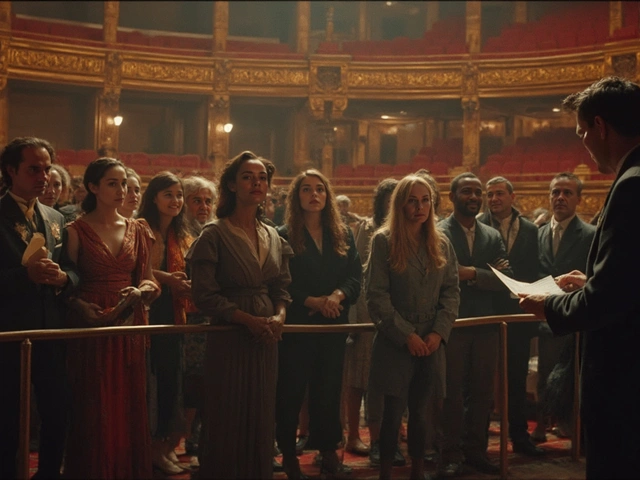Have you ever dreamed of seeing your name in lights, or maybe landing a role in a blockbuster movie? Well, casting calls are your first step on that exhilarating journey. Most actors, even the big-time ones, have started their career queuing up for casting calls. They're like a launch pad—bringing you closer to your big break.
So, what exactly are casting calls? Simply put, they're like open invitations for actors to audition for roles in various productions. It's your chance to show off your skills, impress casting directors, and, with a bit of luck, land a role.
Wondering why you should bother with casting calls? Well, think about it. Not only do they give you a shot at your dream role, but they also let you network with industry insiders. Plus, each audition is an experience that hones your talents, making you a better actor with every attempt.
If you're new to this scene, don't worry! Understanding the different types of casting calls is crucial. You might come across open casting calls, where anyone can walk in, or invite-only auditions, where you need a special invitation. Knowing the difference can really help you plan and prepare.
So, if you're ready to jump into this world of endless possibilities, stay tuned! We'll explore how to find auditions, tips to nail them, and what to expect in the process. Your dream role might be just a casting call away!
- Key Points
- Direct Answer
- Comprehensive Guide to Casting Calls
- Benefits of Casting Calls
- Types of Casting Calls Available
Key Points
Let's dive straight into the essentials of casting calls. These are the main takeaways you need to remember when preparing for a casting call:
Understanding Casting Calls
Casting calls are like auditions where you showcase your acting chops. They can be for movies, TV shows, theatre, or commercials. It's your chance to make the right impression on casting directors who are on the lookout for talent.
Types of Casting Calls
- Open Casting Calls: Open to all, you don't need an invite. They have a higher turnout, so be prepared for a crowd.
- Invited Auditions: Reserved for those who receive an invitation, often after a recommendation or previous work.
- Online Submissions: Record your audition and send it digitally. It's increasingly common, especially for initial screenings.
Benefits of Participating
Attending casting calls offers numerous advantages. Beyond landing a role, it's a great way to gain experience, receive feedback, and understand the casting process. Networking with industry professionals at auditions can open doors you didn't even know existed.
Preparation is Key
Before heading to a casting call, research the role, the production, and the people involved. Tailor your audition to fit the character. Practice your lines and bring multiple headshots and resumes.
Success Rates and Stats
| Type of Casting Call | Success Rate |
|---|---|
| Open Casting Call | 5% |
| Invited Audition | 20% |
| Online Submission | 10% |
Though success rates vary, perseverance is key. Many actors score roles after several attempts.
Final Tips
- Always be yourself, yet versatile with character portrayal.
- Arrive early to calm nerves and avoid any rushed circumstances.
- Dress appropriately; it counts!
Remember, every casting call is a step closer to your dream role. So, approach them with enthusiasm and the right mindset!
Direct Answer
In a nutshell, casting calls are the initial step actors take to secure roles in movies, TV shows, commercials, and theater productions. Casting directors announce these auditions to find talent that matches the specific requirements of a role.
So how does this process unfold? Typically, the casting team releases a brief that outlines the type of talent they’re seeking. This includes specifics like age, gender, and sometimes even personality traits or skills. Actors then prepare to showcase their best selves in auditions, aiming to convince directors they’ve found the perfect fit.
The importance of auditions shouldn't be underestimated. They're more than just having a foot in the door—each audition is a performance chance and a networking opportunity in the highly competitive acting landscape.
What Happens at Casting Calls?
When you attend a casting call, expect a room full of hopefuls with similar dreams. You'll likely fill out a form with your details, followed by a short audition. This could involve reading from a script, performing a monologue, or demonstrating a particular skill, like singing or dancing. Casting directors and sometimes producers or directors are present to evaluate talent.
Here's a typical casting call process broken down:
- Preparation: Familiarize yourself with the role and prepare required material like a monologue or script excerpt.
- Registration: Sign in, hand over your headshot and resume, and fill out any necessary forms.
- Audition: Perform as per the instructions given. Sometimes, they might ask for improvisation or additional takes.
- Feedback/Callbacks: Occasionally, you may get immediate feedback or callbacks for further auditions.
Understanding this routine makes the process less daunting. It’s all about showcasing talent and matching a vision.
Why Casting Calls Matter
Many industry pros stress that success in acting comes from persistence. Continual casting calls and auditions build experience, boost confidence, and increase exposure. Besides, each casting call can connect you to key industry insiders.
According to industry stats, only about 10% of actors secure significant roles each year, underscoring the need for resilience and continuous improvement in skills through regular auditions.

Comprehensive Guide to Casting Calls
Ready to dive into the world of casting calls? Let's break it down so you can navigate with confidence and make the most of every opportunity that comes your way.
What Are Casting Calls?
Casting calls are announcements that seek actors for roles in films, TV shows, theater productions, commercials—you name it. They’re basically the chance to show casting directors that you’re the right fit for a role. These calls will often list details like the type of production, character descriptions, and audition dates and locations. So keep your eyes peeled!
How Do Casting Calls Work?
The process usually starts with actors submitting their headshots and resumes online or in-person. If the casting directors like what they see, you'll be invited to audition. That’s when you get to showcase your talent, usually with a prepared monologue or scene. Callbacks might be next if they think you've got potential.
Types of Auditions
- Open Casting Calls: Anyone can attend without prior selection. Perfect for new actors hoping to get noticed.
- Closed Casting Calls: Only invited actors can audition, usually those with experience or agents.
- Self-Tape Auditions: Submit a video performance instead of attending in person—super convenient if you want to audition for multiple roles quickly.
Where to Find Casting Calls
Finding casting calls might seem daunting, but there are plenty of resources out there. Websites like Backstage, Casting Networks, and Actors Access are popular for advertising current opportunities. Plus, many productions post on social media nowadays, so follow pages related to acting roles for real-time updates!
If you're just starting out, consider joining acting groups or communities near you. These networks often share leads and can introduce you to valuable industry connections.
Benefits of Attending Casting Calls
Every casting call you attend is a stepping stone towards honing your craft. They offer exposure—you never know who's watching and might remember your performance for the future. Plus, networking is key in the acting business, and casting calls are perfect for meeting people who can open doors for you.
Quick Stats on Casting Calls
| Aspect | Details |
|---|---|
| Open Casting Percentage | Approximately 70% of new actors start here. |
| Average Callback Rate | Usually 10-20%, depending on the role. |
| Online Audition Increase | Reported a 30% rise since 2020. |
So there you have it—a quick yet detailed guide to turning auditions into a launch pad for your acting career. Stay organized, keep practicing, and who knows? The spotlight might be on you sooner than you think!
Benefits of Casting Calls
Ah, casting calls. Just the thought of them can set your heart racing with excitement and anticipation. But these auditions are more than just nerve-wracking encounters—they're filled with benefits that can shape your acting career in remarkable ways.
Build Experience
First off, casting calls are an unbeatable way to rack up experience. Every audition you attend gives you a chance to perform and learn. Think of it as your personal, real-world acting class where you learn by doing. The more you audition, the more skilled you become at reading scripts, interpreting roles, and managing audition nerves.
Expand Your Network
Then there's the networking aspect. At a casting call, you'll meet other passionate actors just like you, and maybe even directors and producers. These connections can be invaluable. A casual chat could lead to future opportunities you wouldn't have come across otherwise. It's all about who you know in this industry, right?
Increase Visibility
Let's not forget visibility. Attending casting calls puts you on the industry map. Even if you don't land the role this time, casting directors get a glimpse of your potential. They might remember you for future projects. Just imagine being the first name they think of when a perfect role comes up!
Develop Resilience
Continuous casting calls teach you resilience. Rejection is a tough pill to swallow, but it pushes you to grow tougher skin. And as a result, you learn to focus on self-improvement rather than setbacks. Over time, this mindset makes you a stronger, more adaptable actor.
| Benefit | Description |
|---|---|
| Experience | Gain practical experience through auditions. |
| Networking | Connect with industry professionals. |
| Visibility | Increase chances of being remembered for future roles. |
| Resilience | Develop a strong, adaptive mindset. |
So, if you're weighing the pros and cons of attending a casting call, rest assured, the benefits far outweigh the downsides. It's not just about landing the role, but who you become and who you meet along the way. Embrace the journey, and you'll find each casting call gets you closer to that dream role.

Types of Casting Calls Available
When diving into the world of casting calls, it's key to know what kinds of auditions are out there. Each type gives you different ways to get noticed. Whether you're into film, theater, or commercials, understanding these options can really help you plan your approach and put your best foot forward.
Open Casting Calls
These are probably the most accessible type of audition. Basically, anyone can show up. No invitation needed! This means they can be pretty crowded, but it's also a great way to get some experience under your belt. Be ready to stand out in the crowd and make a quick impression.
Closed or Invite-Only Auditions
These are a bit tougher to get into because you need an invitation. They're usually for more specific roles or high-profile projects. Having an agent helps here, as they can get you those coveted invites. These auditions offer a more focused setting, letting you really showcase your talents.
Online Auditions
In recent years, online auditions have become more popular. Perfect for those who can't travel. You send a video of your performance to the casting directors. Just remember, the camera is your audience, so make sure your recording is clear and captures your essence as a performer.
Callback Auditions
If you impressed the first time, you might get asked back for a callback. These focus on a smaller group of actors, and they might ask you to perform additional material or work with other actors. This is where casting directors get serious, so be prepared to dive deeper into the character.
Commercial Auditions
Commercial casting calls can be a great way to gain visibility and earn some cash. These are usually quick and based on a specific look or type. Be ready to be spontaneous and adaptable, as commercials often require strong improvisational skills.
Knowing the kinds of casting calls out there can help you target your audition efforts and increase your chances of getting noticed. Whether you aim for open calls to gain experience or focus on invite-only auditions for specific roles, each type is a stepping stone towards your dream role.







